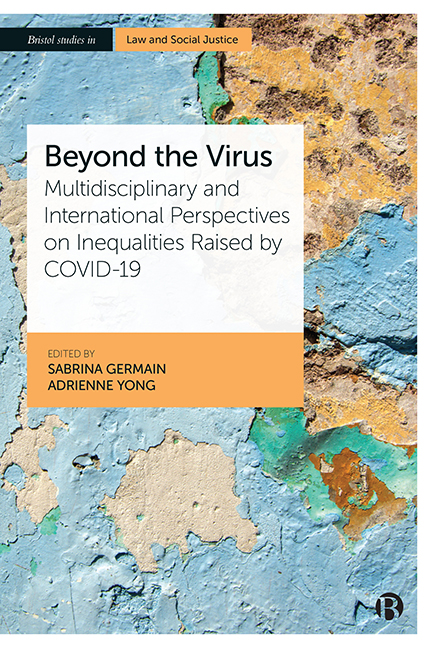 Beyond the Virus
Beyond the Virus Foreword
Published online by Cambridge University Press: 17 January 2024
Summary
For too long, international human rights discourse has been underpinned by the organization of various legal rights into a strict hierarchy of so-called first to fourth ‘generations’. According to this understanding, first generation civil and political rights, such as freedom of speech and freedom of religion, have gained priority over second generation social and economic rights, which encompass, among other things, the right to food and housing. In turn, these so-called second generation rights trump later generations; such as, for example, rights relating to access to personal data and data security.
Needless to say, this way of conceiving human rights has not gone uncontested by lawyers, academics and civil society organizations located in both the Global North and the Global South. Indeed, the extant order has been challenged most vociferously by governments in the Global North – in the regions of Africa, in particular – which, pre-independence, had minimal input in the early articulation of an international human rights framework, and whose influence even today is muted by the economic and political dominance of Northern states.
While there is no obvious consensus of what a reimagined international human rights regime might look like, radical thinkers envision a more dialectical, less deterministic, relation between those rights that currently exist and those that have yet to emerge. Reconceived thus, all rights would be both inalienable and contingent. In such a world, it would be impossible to maintain the present hierarchical relation between the right to equality before the law, guaranteed under the first generation, and the right of access to computing and digital spaces – currently assigned to a nascent fourth generation – since one cannot be effectively protected without the other.
The manner in which the COVID-19 health emergency has played out across the globe has revealed the essential fragility of the current human rights order. Measures put in place to curb the spread of the virus – which in most states involved lockdowns of various lengths and intensity – were justified on the basis of the predominant obligation to preserve the right to life as enshrined within the first generation of rights.
- Type
- Chapter
- Information
- Beyond the VirusMultidisciplinary and International Perspectives on Inequalities Raised by COVID-19, pp. xiv - xviiiPublisher: Bristol University PressPrint publication year: 2023
